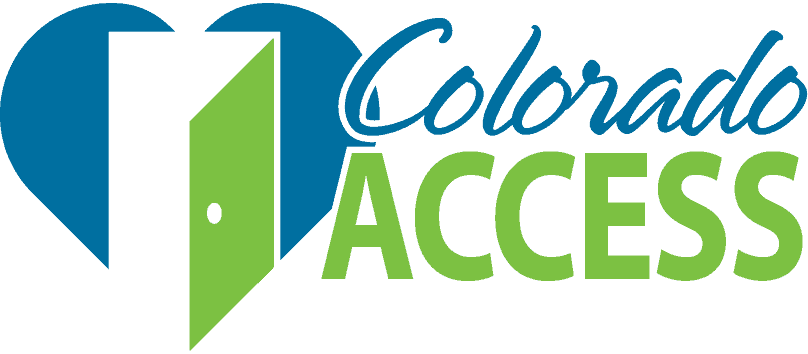Yoga Therapy
At CuraWest we believe that taking a comprehensive approach to clinical care is the most effective way to lay a solid foundation for continued sobriety. We combine standard clinical practices like behavioral therapy with proven holistic methods of healing. A significant amount of research has been conducted on the benefits of Yoga Therapy in the context of addiction recovery. In fact, the National Institutes of Health now categorizes Yoga Therapy as a medically recognized method of Complementary and Alternative Medicine.
Traditional yoga practices are geared towards directing attention to physical health while helping bolster spiritual connection and integrated wellness. Spirituality is a major component of addiction recovery, and yoga helps clients heal in a comprehensive way – physically, mentally, emotionally and spiritually. At CuraWest, we utilize the healing benefits of yoga by incorporating the proven holistic practice into our individualized continuum of care. Clients have the opportunity to participate in group Yoga Therapy sessions which are incorporated into our weekly schedule and facilitated by a trained and experienced practitioner. Sessions can accommodate yogis of all experience levels, from beginners to those with a regular yoga practice already in place. To learn more about Yoga Therapy or to learn more about our holistic program of addiction recovery as a whole, contact us today.
What is Yoga Therapy?
Yoga Therapy is a long-standing method of mind-body fitness — a tradition that dates back over 3,000 years, and is now regarded as one of the most beneficial and widely accessible applications of alternative medicine. Research shows those who practice yoga regularly experience increased levels of self-awareness, improved emotional regulation and stress responses, and in many instances, an improved quality of life overall. There are four major principles which encompass the healing properties of yoga.
-
- The human body is a holistic entity. The mind, body, and spirit are interconnected. If one of these facets is in need of healing, the other two will inevitably be impacted. For example, if a person is in spiritual distress their physical and mental health will be impacted. If a person is struggling with a chronic physical illness, the quality of their mental and spiritual well-being will be compromised. Because active addiction impacts the mind, body, and spirit, it is important to incorporate holistic healing into every individualized recovery program.
- Every individual is completely unique. Because of this uniqueness, it is important for yoga practices to acknowledge individuality and take personal needs into careful consideration.
- Yoga encourages self-empowerment. While the yoga teacher or practitioner helps guide the student through their practice, the student is ultimately their own healer. They come to understand that continued healing comes from within, leading to a greater sense of autonomy and self-sufficiency.
- An individual’s ability to heal is contingent upon their state of mind. It is easier for a person to heal if they embrace positivity. If a person is stuck in a negative or self-defeating thought pattern, yoga might prove to be less effective.
Benefits of Yoga Therapy
There are many benefits — both short and long-term — associated with Yoga Therapy. Benefits include:
- Increased physical strength and overall physical health.
- Non-invasive method of pain management.
- The development of healthy habits.
- The ability to regulate and work through uncomfortable emotions.
- Effective method of self-soothing.
- Improved sleep.
- Increased ability to engage in non-judgmental self-reflection and increased self-awareness.
- Increased sense of personal empowerment.
- More opportunities for integrated mind-body focus.
- Decrease in symptoms of depression and anxiety.
According to an article published by the National Institutes of Health, “Yoga encourages one to relax, slow the breath and focus on the present, shifting the balance from the sympathetic nervous system and the flight-or-fight response to the parasympathetic system and the relaxation response. The latter is calming and restorative; it lowers breathing and heart rate, decreases blood pressure, lowers cortisol levels, and increases blood flow to the intestines and vital organs.” When someone who is new to sobriety experiences a relapse (a return to drinking or drug use), it is often because they find themselves in a heightened emotional state and lack the healthy coping mechanisms needed to de-escalate. Not only can yoga asanas be implemented whenever a client feels emotionally distressed, but practicing yoga regularly leads to more emotional stability on a day-to-day basis.
How Effective is Yoga Therapy for Addiction Recovery?
According to a study published by the National Library of Medicine, “Yoga in the management of drug dependence has been an intriguing area of interest since the last decade. Yoga is being considered as a holistic intervention inducing dopamine homeostasis leading to long-term benefits in management of addictive behaviors termed as ‘Reward Deficiency Syndrome.’ The present review attempts to review the available literature on the role of yoga in management of drug dependence.” Exactly how effective is Yoga Therapy in the management of drug and alcohol dependence? Numerous studies point towards the effectiveness of yoga in crucial areas of addiction recovery, like stress management and craving reduction. However, it is important to note that because addiction is a multi-faceted health condition, more extensive and integrated treatment options are required in order for long-term sobriety to be achieved.
Our Drug & Alcohol Detox Services Include
CuraWest & Yoga Therapy
At CuraWest we offer Yoga Therapy sessions three times a week in the residential portion of our program. A licensed Yoga Therapist visits our Denver, Colorado residence and facilitates a small group class, which can be easily individualized to accommodate the capabilities of each client. We utilize Yoga Therapy as a fundamental component of the holistic portion of our integrated treatment program. In addition to holistic treatment options, we combine intensive therapeutic intervention and 12 Step/peer support group involvement, creating a multi-pronged approach to substance use and mental health treatment that truly leaves no stone unturned. We encourage clients who benefit from yoga classes to continue with their personal practice once treatment comes to an end. If a client decides to reside in the Denver area after treatment, we connect them with an affordable and reputable yoga studio in the area.
Ready To Begin Your Drug & Alcohol Detox?
We Offer A Safe & Effective Program
Don’t let Drug & Alcohol addiction control your life.
Call us today and let’s get you started on the path to a better you.
Techniques Utilized in Our Yoga Therapy Program
Our Yoga Therapy sessions incorporate several useful techniques, from deep breathing to guided imagery. All of these techniques have proven beneficial in the context of substance use and mental health recovery.
Yoga Postures/Asanas
When you experience stress, tension is stored throughout the physical body, leading to headaches, fatigue, and chronic pain. Hatha Yoga (the physical practice of moving through different yoga postures) helps alleviate this tension, improving overall well-being. Hatha yoga varies from a fast-paced workout to slow, meditative stretching.
Breathing Exercises
Breathwork, also known as pranayama, helps clients effectively work through high-stress situations. Learning to regulate the breath can be an extremely beneficial relapse prevention technique, as well.
Meditation
In some instances, racing thoughts and morbid reflection can lead to a heightened emotional state that might eventually lead to relapse. The ability to tap into a meditative state and quiet the mind can be extremely beneficial to those who are new to sobriety. In yoga, clients are often guided through a brief meditation at the end of their practice (during savasana). Yoga Nidra is a slow-paced practice that is typically interwoven with opportunities for meditation.
Mind-Body Connection
In Yoga Therapy clients learn about the undeniable connection between their physical bodies and their minds. They learn how negative thought patterns can lead to physical ailments, and how failing to exercise or eat well can negatively impact mental health. Yoga focuses on strengthening the relationship between the mind and the body.
Begin Healing Now!
Have A Call With One Of Our Treatment Advisors
Don’t Suffer Any Longer
Yoga Therapy is only one of the proven modalities offered at CuraWest. Our program of addiction recovery in Denver, Colorado is both integrated and individualized, providing clients with a treatment experience unlike any other. As soon as you make the decision to reach out for help, you will be put in contact with an experienced Treatment Advisor who will walk you through our simple admissions process. We begin by conducting a brief assessment which helps us determine whether or not our recovery program is right for you. If it is determined that you would benefit from our medical detox program and/or residential treatment program, we conduct a free, no obligation health insurance benefit check and help arrange local ground transportation to our facility. If you live out of state we will help you arrange more extensive travel plans, though additional travel expenses will be your responsibility. To learn more about our holistically-based treatment program or to get started on your own personal journey of addiction recovery, contact us today.

















